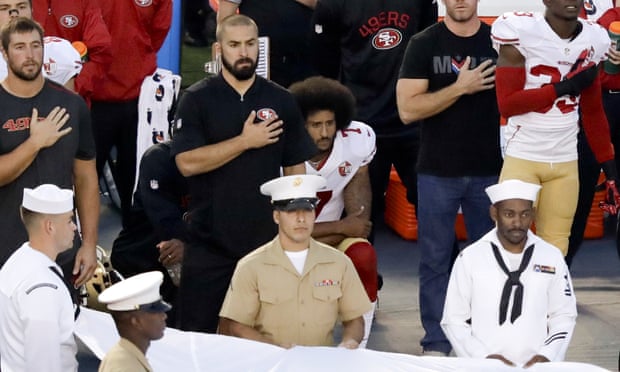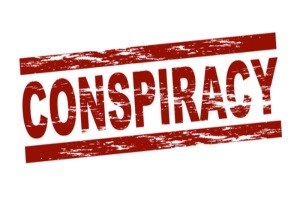The Rev'd Richard Smith, Ph.D.
PROPER 26
Twenty-fourth Sunday after Pentecost
See the video
See the video
The other day, I was having coffee with a friend who, many years ago, was a gang member. He got swept up into “the life” when he was a teenager, before he could fully understand what was going on. His family was very poor and needed money, but there were no jobs. So he signed up, got “jumped” into one of the gangs, sold drugs to make money for his family, defended his gang’s turf.
He got into violent combat with rival gangs. And he drove more than one of his best friends to the hospital, watching them bleed to death on the way from gunshot wounds. He called them by their nicknames as he told their stories: Gato, Chuy, Boxer, Mono, Tiny.
When I walk through the neighborhood with him nowadays, his jaws start to clench, his eyes get red, sometimes tears well up. There’s not a street corner in this neighborhood that doesn’t carry the traumatic memory of a friend who once hung out there, who was eventually killed there.
As a teenager wanting to help support his family, my friend had become trapped in a corrupt system that was bigger than him, that he neither understood nor controlled.
Welcome to today’s gospel story about Zacchaeus, the tax collector. Like my ex-gang member friend, he, too, had become caught in a violent and corrupt system. Despite the money it provided, the life of a tax collector was a trap.
Maybe his is a story about you and me, each of us our own kind of Zacchaeus. Each of us caught up in a corrupt system beyond our understanding and control.
Preachers have given Zacchaeus a bad rap. This stems from a mistranslation of the original Greek that Luke wrote his gospel in. I’ll get to that later.
First, just to recap, Zacchaeus was a Jewish man who worked as a wealthy tax collector for the Romans. They were brutally occupying Israel at the time, slaughtering innocent Jews, eventually destroying their sacred temple. Because Zacchaeus was collaborating with the Romans, his fellow Jews considered him a traitor.
How did a Roman tax collector get wealthy? By extorting and embezzling. By taking advantage of the elderly, exploiting the working poor, and taking care of his cronies.
Zacchaeus is not only a traitor to his own people, but also is assumed to be corrupt and deserving of our disdain.
And he was short. When Jesus passed through Jericho, Zacchaeus was so eager to get a look he did something utterly undignified for a man of his station. He ran ahead of the crowd, climbed into a tree, then waited for Jesus to pass by. It would be like a powerful Washington lobbyist or a Wall Street exec shimmying up a street lamppost during a presidential parade.
When Jesus reached that spot, he looked up, saw Zacchaeus, told him to come down, and invited himself to dinner. And so Zacchaeus climbed down and "welcomed Jesus gladly."
The response of the crowd was predictable. Luke says "they began to mutter, ‘Look,’ they said, ‘Jesus has gone to be the guest of a sinner.'"
But Zacchaeus stands his ground against the muttering crowd. And this is where the mistranslation happens. It’s about the tense of the Greek verbs.
Stay with me here.
In the English translation we heard this morning, the verbs are in the future tense. “Half of my possessions...I will give to the poor; and if I have defrauded anyone of anything, I will pay back four times as much." In this interpretation, Zacchaeus is a sinner who repents and resolves to turn over a new leaf. From this point forward he will make restitution.
.
But this is a mistranslation. As more recent scholars have noted, the Greek verbs are and should be translated as present tense. In this interpretation, Zacchaeus is standing his ground before the muttering crowd by explaining what he is already doing: "Lord, I always give half of my wealth to the poor, and whenever I discover any fraud or discrepancy I always make a fourfold restitution."
He’s been going way beyond all the legal requirements. He is, in short, a hidden saint whom people have made all sorts of false assumptions about. The crowd had demonized Zacchaeus. But Jesus now praises him as "a son of Abraham."
This story fits with many others in which Jesus mentions several unlikely heroes — the Roman soldier with faith deeper than any Israelite’s, a "good" Samaritan, the Samaritan leper who was the only person to give thanks for his healing, not to mention that other tax collector at the back of the temple who was more righteous than the holier-than-thou Pharisee.
So maybe this story is not about a sinner who shocks us by repenting, but about the crowd that has demonized him. Maybe it’s about a good man, like my ex-gang member friend, trying to find a way through a corrupt system he neither understands nor controls.
Maybe it’s a story about you and me, each of us our own kind of Zacchaeus. Because we, too, are caught up in corrupt systems beyond our understanding and control.
Most of us are citizens of this nation founded on the enslavement of black people and the genocide of Native Americans, horrific legacies all-too-apparent to this day from Ferguson to Standing Rock. A nation that has wreaked unbelievable pain on the countries of Central America and so many other places in the world, engaging in torture, forcing people to flee for their lives.
And we’re part of a larger church that has it’s own history, has condoned slavery, unleashed nothing short of cultural genocide on Native Americans through our boarding schools, forced baptisms, and other missionary efforts; a church responsible for the spiritual if not outright sexual abuse of women, queers, children.
Like Zacchaeus in today’s gospel, like my ex-gang member friend, we, too, are good people who are nevertheless caught up in deadly, corrupt systems of both church and state that we do not fully understand or control. Caught up in what some theologians describe as an original sin that both precedes and transcends us as individuals.
But we are nevertheless part of that sin and it is part of us. So, like Zacchaeus, we do everything we can to make things different.
It’s about living in these in-between times, in a broken world still in progress, in which the reign of God has not fully arrived.
And so we at St. John’s come to this table each week, pilgrims in a broken world, seeking food for the journey and supporting each other along the way--“walking each other home,” as Ram Dass would say.
Because although this world is very broken, and although our efforts can seem so small and insignificant, still, like Zacchaeus, we, too, can stand our ground, let our light shine a bit.
In this broken world, I hope you are as proud as I am of what we have been able do as a community.
- In a time of growing inequity and displacement, unhoused people find in these walls each weekday morning a safe dry place for much needed sleep and food
- On any given Saturday, our pantry serves as many as 200 people
- In both our Nightwalks and our vigils at Mission Police Station, we call for an end to the violence wracking our neighborhood, whether it comes from the gangs or from the police. Many of our neighbors honk their horns and give us thumbs ups when they see us on the street.
- We started and continue to support Mission Graduates, helping local kids through high school and on to college.
- In Nicaragua, ravaged for so long by our own country, many of us have worked alongside local people building latrines and wash stations, and providing fresh, clean water. The next work trip is already being planned.
- More recently, we’ve begun discerning how we can help the many young people arriving at our door step after fleeing for their lives from Central America.
- The Native Aztec community for many years was told by clergy that their ancient ceremonies were devil worship and performing them would mean everlasting hellfire. But here at St. John’s, our Native brothers and sisters in the Danzantes Xitlali find a welcome space to practice their beautiful dances and celebrate their ancient stories, ancestral teachings, and rituals.
- Similarly, our Buddhist friends in Mission Dharma continue to find this space a blessing to themselves and many spiritual seekers from around the City.
Soon we’ll be taking our souls to the polls to vote the values we cherish here each Sunday.
I hope you are as proud of these things as I am. And during this Stewardship season, I hope they are part of your discernment as you consider how much St. John’s is worth to you, how much to give financially in the coming year.
Like Zacchaeus, we are broken and incomplete people in a broken and incomplete world. But also like Zacchaeus, we try to be, as Gandhi would say, the change we hope to see in the world.
Let me close with a prayer I’ve used from time to time, words attributed to Archbishop Oscar Romero.
It helps, now and then, to step back and take a long view.
The kingdom is not only beyond our efforts, it is even beyond our vision.
We accomplish in our lifetime only a tiny fraction of the magnificent enterprise that is God's work. Nothing we do is complete, which is a way of saying that the Kingdom always lies beyond us.
No statement says all that could be said.
No prayer fully expresses our faith.
No confession brings perfection.
No pastoral visit brings wholeness.
No program accomplishes the Church's mission.
No set of goals and objectives includes everything.
This is what we are about.
We plant the seeds that one day will grow.
We water seeds already planted, knowing that they hold future promise.
We lay foundations that will need further development.
We provide yeast that produces far beyond our capabilities.
We cannot do everything, and there is a sense of liberation in realizing that.
This enables us to do something, and to do it very well.
It may be incomplete, but it is a beginning, a step along the way, an opportunity for the Lord's grace to enter and do the rest.
We may never see the end results, but that is the difference between the master builder and the worker.
We are workers, not master builders; ministers, not messiahs.
We are prophets of a future not our own.






